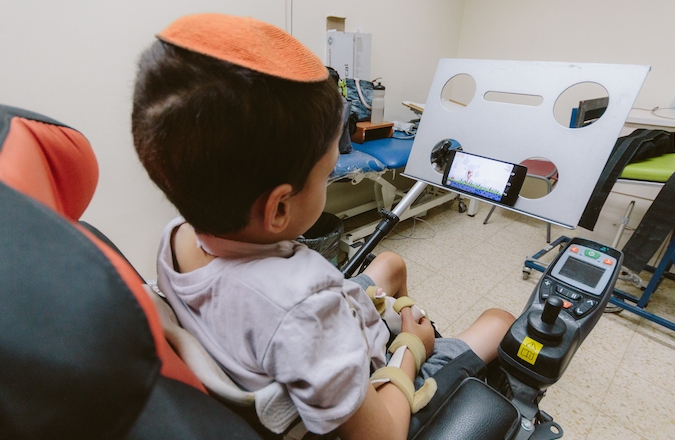Op-Ed: Speak out to make U.S. more inclusive for disabled
Published February 23, 2015

The Jewish community must go beyond merely making its own institutions inclusive of the disabled, William Daroff and Lynne Landsberg write. (Basti Hansen)
WASHINGTON (JTA) — A quarter-century ago, the Americans with Disabilities Act became the law of the land. That’s 25 years of progress, of advances that have improved the lives of people with disabilities beyond what was previously possible.
The Jewish community has joined in those efforts and sought to bring accessibility and awareness to the forefront. This February marks the seventh annual Jewish Disability Awareness Month, or JDAM.
Jewish institutions nationwide continue to redouble their efforts to foster inclusive communities for people with disabilities. Since the establishment of JDAM in 2009, advocates have been successful in many ways, starting with an increased effort by synagogues and other Jewish organizations to ensure that all Jews are able to fully participate in the Jewish life of their choosing, from accessing the bimah to holding leadership positions.
Yet too often, organizational initiatives to welcome people with disabilities fall under the purview of a single social action committee. We must help our institutions understand that accommodating people with disabilities is not a project. It is a basic prerequisite in ensuring our Jewish institutions serve our diverse Jewish population and foster a sacred community for all.
But even this is not enough. For all the progress we have made within our communities, these strides are not reflected in our nation’s laws. Together as a community, we must expand our focus outward, from inclusion efforts within Jewish institutions toward advocacy efforts on the national level for policies that advance disability rights.
As leaders of the Jewish Disability Network, a coalition of over two dozen Jewish organizations advocating for disability rights, advocates from across the country will join us this year on Capitol Hill on Feb. 25 for Jewish Disability Advocacy Day, where we will advocate for policies to make our country more inclusive for all people.
We will speak about the importance of Social Security Disability Insurance, which provides a safety net for people who become disabled and can no longer work and have contributed, through payroll taxes, to the Social Security Trust Fund. In 2013, more than 10.9 million people were SSDI beneficiaries, with average benefits amounting to around $1,140 per month.
SSDI is expected to become insolvent at the end of 2016, leading to across-the-board benefit cuts of 20 percent if no action is taken. Without these benefits, it is estimated that more than half of SSDI recipients would live in poverty.
Another important issue is the availability of accessible public transportation. Without transportation options, many are cut off from employment, health care and community involvement opportunities. Programs like Easter Seals’ Project Action and the Enhanced Mobility of Seniors and Individuals with Disabilities program helps meet some of the transit needs of people with disabilities, but programs like these are woefully underfunded.
As Congress debates reauthorization of the surface transportation bill, our senators and representatives should work to expand funding for these vital transportation programs serving people with disabilities.
As a Jewish community, it is our religious and social obligation to help realize a world where people with disabilities have equal opportunities. We hope you’ll join us this Jewish Disability Awareness Month in raising your voice in support of disability rights, both in your community and nationwide.
(William Daroff is the senior vice president for public policy and director of the Washington office of The Jewish Federations of North America. Rabbi Lynne Landsberg is the senior advisor on disability issues at the Religious Action Center of Reform Judaism.)
![]()













